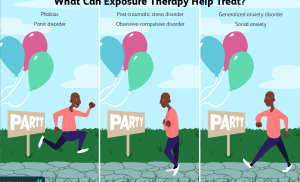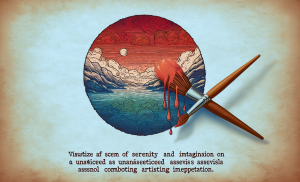Mindful Decision Making: Strategies For Complex Choices
Are you someone who often finds themselves overwhelmed by complex decisions? Whether it’s choosing between two job offers or deciding on a major life change, making tough choices can leave us feeling stressed and uncertain. However, by implementing mindful decision-making strategies, you can navigate through these difficult decisions with clarity and confidence. In this article, we will explore the importance of mindful decision-making and provide you with practical strategies to help you make well-informed choices that align with your values and goals.
Understanding Mindful Decision Making
What is mindful decision making?
mindful decision making is the process of making choices with full awareness and intention. It involves bringing a focused and non-judgmental attention to the decision-making process, allowing you to fully consider the options, potential outcomes, and the values and priorities that guide your choices. By practicing mindfulness, you can cultivate a state of presence and clarity that enables you to make decisions that align with your deepest values and serve your long-term goals.
The benefits of mindful decision making
The practice of mindful decision making offers numerous benefits. Firstly, it allows you to approach complex choices with a sense of calm and equanimity, reducing stress and anxiety associated with decision-making. By staying present and aware, you are able to thoroughly assess the available information, weigh the potential outcomes, and make decisions based on a clear understanding of the situation. Mindful decision making also enhances your ability to consider the perspectives and interests of others, leading to more collaborative and inclusive decision-making processes. Moreover, by aligning your choices with your core values and long-term priorities, you are more likely to experience a greater sense of fulfillment and satisfaction with your decisions.
How mindfulness can enhance decision making
Mindfulness enhances decision making by cultivating a heightened sense of self-awareness, allowing you to recognize any biases, judgments, or emotional reactions that may cloud your judgment. By practicing non-judgment and observing these thoughts and feelings without getting caught up in them, you can make decisions from a place of clarity and objectivity. Furthermore, mindfulness helps build emotional resilience, enabling you to navigate the complexities and uncertainties of decision-making with grace and composure. By developing a mindful mindset, you can tap into your intuition and gut feelings, and balance them with rational analysis to make more well-rounded and informed decisions.
Preparing for Complex Choices
Identify the complexity of the decision
Before diving into the decision-making process, it is important to assess the complexity of the decision at hand. Consider the number of factors that need to be taken into account, the level of uncertainty involved, and the potential impact of the decision on various stakeholders. By recognizing the complexity, you can approach the decision with the necessary level of focus and preparation.
Gather relevant information
To make informed decisions, it is crucial to gather and analyze relevant information. This can involve conducting research, consulting experts or trusted sources, and seeking out data or evidence that can inform your understanding of the situation. By ensuring that you have the necessary information, you can make decisions that are well-grounded and supported by facts.
Consider the potential outcomes
When faced with complex choices, it is important to consider the potential outcomes of each option. Visualize different scenarios and assess the potential risks, benefits, and consequences associated with each choice. By considering the possible outcomes, you can make more informed decisions that take into account both short-term and long-term impacts.
Developing a Mindful Mindset
Cultivating self-awareness
Self-awareness is a fundamental aspect of mindful decision making. Take the time to observe your thoughts, emotions, and bodily sensations as you engage in the decision-making process. Notice any biases, fears, or attachments that may be influencing your judgment. By cultivating self-awareness, you can gain clarity on your own values, needs, and desires, enabling you to make decisions that align with your authentic self.
Practicing non-judgment
Mindful decision making involves practicing non-judgment towards yourself and others. Recognize that thoughts and emotions are simply passing experiences, and try to refrain from judging them as good or bad. By adopting a non-judgmental attitude, you can create space for more creative and open-minded thinking, allowing for a broader range of possible solutions.
Building emotional resilience
The decision-making process can be emotionally challenging, especially when faced with uncertainty or conflicting options. Building emotional resilience through mindfulness can help you navigate these challenges more effectively. By staying present and mindful of your emotions, you can respond to difficult emotions with compassion and understanding. This allows you to maintain a balanced perspective and make decisions from a place of emotional well-being.
Applying Mindfulness Techniques
Mindful breathing
Mindful breathing is a simple yet powerful technique that can help bring focus and clarity to the decision-making process. Take a few moments to close your eyes and bring your attention to your breath. Notice the sensations of each inhalation and exhalation, allowing yourself to fully immerse in the present moment. This practice can help calm the mind and create a sense of spaciousness that allows for more effective decision making.
Body scan meditation
The body scan meditation is another mindfulness technique that can enhance decision making. Start by bringing your attention to different parts of your body, starting from the top of your head and working your way down to your toes. Notice any sensations or areas of tension, and allow yourself to fully experience the present moment in your body. This practice can help ground you in the present moment and provide valuable insights into your physical and emotional state, aiding in the decision-making process.
Mindful observation
Mindful observation involves bringing a curious and non-judgmental awareness to the present moment. Take the time to observe your surroundings, paying attention to details that you may have otherwise overlooked. By practicing mindful observation, you can cultivate a sense of curiosity and openness that can lead to more insightful and creative decision making.
Analyzing Pros and Cons
Creating a pros and cons list
When faced with complex choices, creating a pros and cons list can be a helpful tool for analysis. Take the time to write down the potential advantages and disadvantages of each option. This can provide a visual representation of the potential benefits and drawbacks, allowing you to assess the overall value and feasibility of each choice.
Assessing the importance and impact of each factor
While creating a pros and cons list, it is important to assess the importance and impact of each factor. Consider the weight of each pro and con, and how they align with your values and priorities. By assigning importance and impact to each factor, you can gain a clearer understanding of which options are more favorable and why.
Considering long-term consequences
When making decisions, it is important to consider the long-term consequences of each option. Analyze how each choice may impact your future goals, relationships, and overall well-being. By considering the potential long-term consequences, you can make decisions that are more aligned with your long-term vision and aspirations.
Seeking External Input
Consulting with trusted advisors
When faced with complex decisions, it can be valuable to seek input from trusted advisors. Share your thoughts and concerns with people you trust, who can provide a different perspective and offer insights that you may have overlooked. By seeking external input, you can benefit from diverse viewpoints that can enrich your decision-making process.
Obtaining diverse perspectives
In addition to consulting with trusted advisors, it is also beneficial to actively seek out diverse perspectives. Engage with individuals who have different backgrounds, experiences, and perspectives than you. By listening to a range of viewpoints, you can gain a more comprehensive understanding of the situation and make decisions that are more inclusive and reflective of the needs and interests of others.
Encouraging constructive feedback
When seeking external input, encourage constructive feedback from those you consult. Create a safe and non-judgmental space for others to share their thoughts and concerns. By fostering an environment of open and honest communication, you can gather valuable feedback that can inform your decision-making process and lead to more well-rounded choices.
Identifying Values and Priorities
Clarifying personal values
To make decisions that align with your authentic self, take the time to clarify your personal values. Reflect on what is most important to you in life and what you stand for. By identifying your core values, you can ensure that your decisions are in alignment with your deeply-held beliefs and principles.
Determining long-term priorities
In addition to clarifying personal values, it is important to determine your long-term priorities. Consider what you want to achieve in the future and what aspects of your life are most important to you. By establishing your long-term priorities, you can make decisions that support your larger goals and aspirations, and avoid getting caught up in short-term distractions.
Aligning decisions with core beliefs
When making decisions, strive to align them with your core beliefs. Consider how each option resonates with your values and priorities, and choose the option that is most congruent with your authentic self. By aligning your decisions with your core beliefs, you can create a sense of integrity and purpose in your choices.
Considering Intuition and Gut Feelings
Honoring intuitive insights
Intuition and gut feelings can be valuable sources of information in the decision-making process. Honor and give space to your intuitive insights, as they may provide valuable guidance that rational analysis alone cannot offer. Trust your instincts and allow your intuition to inform your decisions, while also considering other relevant factors.
Balancing intuition with rational analysis
While intuition can be a powerful tool, it is important to balance it with rational analysis. Consider the facts, evidence, and logical reasoning behind each option. By integrating both intuition and rational analysis, you can make decisions that are both informed and aligned with your deeper sense of knowing.
Using gut feelings as additional input
Gut feelings can serve as additional input in the decision-making process. Pay attention to any bodily sensations or subtle cues that arise when considering different options. These sensations can provide valuable information about your subconscious feelings towards each choice. By acknowledging and considering your gut feelings, you can access a deeper level of wisdom and make decisions that feel right on a profound level.
Assessing the Ripple Effects
Anticipating potential consequences
When making decisions, it is important to anticipate the potential consequences that may arise. Consider how each choice may impact various aspects of your life, as well as the lives of others. By taking into account potential ripple effects, you can make decisions that minimize negative impacts and maximize positive outcomes.
Identifying stakeholders and their interests
Identify the stakeholders who may be affected by your decision and consider their interests and perspectives. Think beyond immediate stakeholders and assess the broader community, environment, and future generations that may be impacted. By considering the interests of all stakeholders, you can make decisions that are more inclusive and socially responsible.
Minimizing negative impacts on others
When assessing the ripple effects of your decisions, strive to minimize negative impacts on others. Consider alternative options or solutions that can mitigate potential harm and maximize benefits for all involved. By making decisions that prioritize the well-being of others, you can contribute to a more harmonious and compassionate world.
Taking Time for Reflection
Avoiding impulsive decisions
Avoid making impulsive decisions by giving yourself time for reflection. Resist the urge to rush into a choice and instead create space for contemplation. By avoiding impulsive decisions, you allow yourself to fully consider the options, assess the potential outcomes, and ensure that your decisions are well-thought-out and aligned with your values.
Creating space for reflection
Create a dedicated space for reflection where you can engage in thoughtful contemplation. This can involve finding a quiet room, going for a walk in nature, or practicing mindfulness techniques mentioned earlier. By creating a space for reflection, you can tune into your inner wisdom and access insights that can guide your decision-making process.
Revisiting choices after a break
After taking the time for reflection, revisit your choices with a fresh perspective. Notice if any new insights or perspectives have emerged during your break. By revisiting choices after a break, you can gain a more holistic view of the decision and potentially make adjustments or reaffirm your initial decision with greater confidence.
In conclusion, mindful decision making is a powerful approach to navigating complex choices. By cultivating a mindful mindset, applying mindfulness techniques, considering multiple perspectives, and aligning decisions with core values and priorities, you can make choices that are informed, compassionate, and in alignment with your authentic self. By embracing mindfulness in decision-making, you can create a positive ripple effect in your life and the lives of others.

















